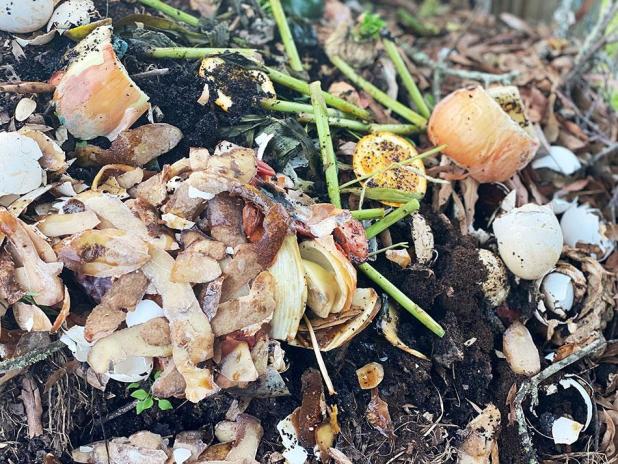
Composting kitchen scraps, yard waste and other organic materials not only reduces waste but also provides a nutrient-rich compost that can be added to the soil. By taking these steps to improve soil health, home gardeners can create a more fertile and resilient garden.
—LSU AgCenter/Heather Kirk-Ballard
Get It Growing: Gardening success starts with soil
The foundation of our gardening success lies in our soil health. Soil is, of course, the root of all things good in the garden. This is the place where plants anchor their roots, and it is a dynamic ecosystem that impacts the growth, health and vigor of our plants.
Soil health is crucial for providing plants with the necessary nutrients, water and physical support they need to grow and thrive. When the soil is healthy, plants are healthier, more productive and better equipped to resist pests, diseases and other stressors. Soil helps plants be more resilient to environmental stresses such as extreme temperatures, heavy rainfall and drought.
As gardeners, we can do many things to help improve soil health and thereby our plants. The first place to start is soil testing. It is a good practice to understand what you are starting with and know the current condition of the soil.
A test can tell you the amount of nutrients and organic matter present and the pH (acidity or alkalinity) level. As homeowners, it is not crucial, but it is an option so that you can know what is lacking — or for that matter, what is in excess, so you do not waste fertilizer.
Soils can be amended with organic matter such as compost, well-rotted manure, leaf mulch and other organic materials that can improve the soil structure, water retention and nutrient content. You also can adjust the soil pH if it is too high (alkaline) or too low (acidic). Add lime to raise pH or sulfur to lower it to the desired level.
Use mulch to help conserve moisture, regulate soil temperature, suppress weeds and gradually enrich the soil as it breaks down.
Avoid over-tilling, as this can disrupt the soil structure and harm beneficial soil organisms. Minimize tilling the soil and consider no-till gardening methods, especially in established gardens. In addition, minimize foot traffic and heavy machinery on garden beds to prevent soil compaction, which reduces air and water movement into the soil.
If you have multiple garden beds, consider rotating the location of your crops each year to prevent the buildup of certain pests and diseases in the soil. This also can help with preventing depletion of nutrients in the soil. This is especially important in herb and vegetable gardening where these types of plants can be heavy feeders.
You can plant companion crops that work well together to help improve soil health. For example, legumes like peas and beans have bacteria in their roots that fix nitrogen in the soil, benefiting the plants around them. In addition, planting cover crops during the off-season helps protect the soil from erosion. These crops can be incorporated back into the soil to add organic matter. Some examples are clover, brassicas, daikon radish, rapeseed and rye.
Additionally, you can encourage beneficial soil microorganisms by avoiding using harmful chemicals. You can opt for organic and natural alternatives instead. The soil biological community includes all living organisms within the soil, which includes things such as insects, earthworms, nematodes, plant roots, animals and a slew of microorganisms including bacteria, protozoa, fungi and even viruses. A single gram of soil can contain billions of bacteria alone.
However, not all are beneficial. It can be a delicate balance. Some retail garden centers sell soil microorganism inoculants that can be applied to the soil to help improve soil health. Follow the manufacturer label for the best results.
By taking these steps to improve soil health, home gardeners can create a more fertile and resilient garden or landscape, leading to healthier plants and a more sustainable gardening practice.
